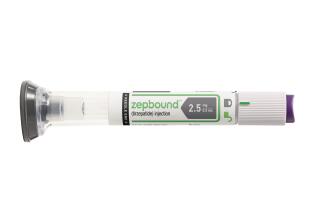Weight loss drug is ally, not cure-all
- Share via
The prescription drug Orlistat, which has produced modest weight loss benefits in seriously overweight people, may soon be sold as an over-the-counter medicine. But it’s not a quick fix for unwanted pounds.
A drug advisory committee convened by the Food and Drug Administration has evaluated the latest research findings and recommended approval of the drug. Although the FDA still must approve the switch, the agency often follows the advice of its advisory committees.
If the drug is approved, the makers of Orlistat -- generic name xenical -- plan to market it as Alli (pronounced “ally”), and it could be available later this year.
Extensive studies suggest that Orlistat produces a 5% to 10% weight loss, much less than most dieters hope for. And many consumers may be put off by the drug’s gastrointestinal side effects, including flatulence, diarrhea and anal leakage.
To achieve any weight loss with it, users must also eat fewer calories and exercise more.
“It’s not a miracle drug,” says Dr. Lawrence Cheskin, director of the weight management center at Johns Hopkins University in Baltimore.
In 1999, Orlistat was approved for use by obese people and by some overweight people with weight-related health problems, including diabetes, high blood pressure and heart disease. More than 100 studies involving about 30,000 patients have been conducted with Orlistat, making it one of the most studied of weight loss drugs. GlaxoSmithKline Consumer Healthcare, maker of Orlistat, says that 22 million people in 145 countries have taken the drug for weight loss and weight maintenance.
In the longest study of Orlistat, participants who took the drug shed up to 12% of their body weight the first year. But by the fourth year of the study, they had regained some of the weight. Overall, they lost a total of 7% of their body weight, compared with 4% for a control group that dieted and exercised but did not take the drug. That works out to about 18 pounds for someone who weighs 250.
“That’s little difference in weight, but significant in terms of medical benefit,” says Dr. Samuel Klein, director of the Center for Human Nutrition at the Washington University School of Medicine in St. Louis. Those lost pounds translate to lower blood pressure, improved cholesterol levels and reduced risk of diabetes.
But at the current recommended prescription dose -- 120 milligrams taken up to three times a day -- about 70% of users experienced gastrointestinal complications, Klein says. That’s because Orlistat works by blocking fat absorption in the intestines.
This medicine can make you intolerant of all fatty foods, Cheskin says. “You might like ice cream, but you probably won’t eat it because it’s simply not worth it.”
The side effects appear to be worse during the first weeks of use, but taper off as many people learn to eat less fat. That switch can also help with weight loss, provided that the fat isn’t replaced with calories from other foods.
Not everyone is convinced that taking the drug is a good idea. Orlistat is on the Worst Pills List compiled by Public Citizen, a consumer advocacy group. In 1997, the group urged the FDA not to approve the drug.
Here’s what else you need to know about Orlistat:
* It won’t work alone. Orlistat makes weight loss “easier, but not effortless,” says Gary Foster, clinical director of the University of Pennsylvania’s weight and eating disorders program. Foster worked with the drug maker to develop an online, yearlong weight loss plan for those who would take the drug.
* Prepare to pay. GlaxoSmithKline says that Alli will probably cost about $2 to $3 a day. That’s for the 60-milligram dose -- half of what has been modestly effective in clinical trials. Studies show the results are more modest at lower doses.
* Calories still count. Some people try to “eat around” Orlistat by skipping high-fat fare but overeating low-fat or nonfat foods.
* Plan on taking a multivitamin to make up for the key vitamins that are not well absorbed when Orlistat is used. Users of Alli will be advised to take a multivitamin including vitamins A, D, E and K -- important for eyesight, bones, immunity and more -- to make up for the loss.






